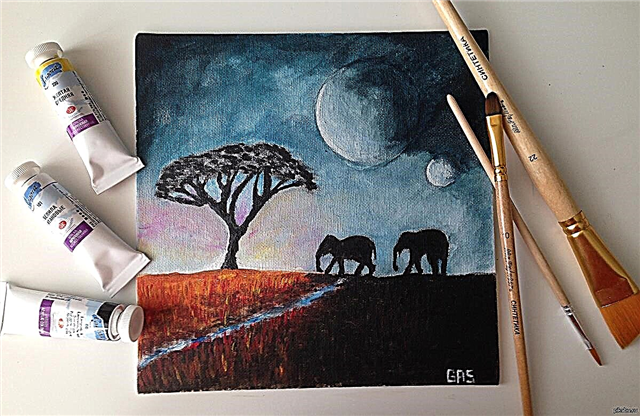
Otitis media affects everyone, regardless of age, but more often than others, children suffer from inflammation of the hearing organs. Medicine explains this by weak children's immunity and the structural features of the Eustachian tube - it is narrower in children and is located without slope. But there are other reasons - psychosomatic. Let's talk about them in more detail.
General information
Otitis media is an inflammatory disease in one of the organs of the hearing. If the auricle becomes inflamed, they speak of otitis externa. With the middle (most common), the middle ear suffers, and labyrinthitis occurs with a pathological process in the inner ear. According to statistics, 8 out of 10 children under three years old manage to get otitis media at least once. At an older age, the disease may be more frequent. In most cases, as the child grows, the Eustachian tube also grows and expands, and therefore episodes of otitis media become rare.
Inflammation is usually caused by bacteria, fungi, viruses... Often, the mechanism of development of inflammation is closely related to the concomitant, previously onset rhinitis, when when sniffing, sneezing, improper blowing out, pathogens enter the auditory tube. Otitis is manifested by severe shooting pain in the ear, sometimes pus or bloody discharge is released from the ear. The temperature rises. There is a sensation of noise in the ear, headaches, dizziness, hearing function decreases.
Otitis media is not always acute, sometimes it is chronic. And in this case, you especially need to pay attention to the information provided in this article.

Psychosomatic causes
Psychosomatic medicine considers diseases of the hearing organs not only from the point of view of the anatomy and physiology of the disease, but also from the point of view of mental and psychological factors that contribute to the development of the disease. The hearing organs give a person access to sound information. With their help, you can hear others, perceive the sounds of nature, music.
If a person has hearing problems, this means that there is something that he persistently does not want to hear.... Most often, in adults and adolescents, this is criticism in their address, therefore, people who do not want to hear comments that they perceive very painfully, more often than others, suffer from various forms of otitis media. They can even lose their hearing in whole or in part, creating sensorineural hearing loss for themselves.
Otitis media in children is associated with other causes - most often with the sound information that gives the child certain experiences... It can be quarrels and scandals in the family, harsh statements and shouts.
The kid does not know how to stop it, does not have the ability and strength to resist it, so he does only what he is capable of - he closes himself off from the flow of sound information traumatizing his psyche. At the subconscious level, prerequisites are created for the inflammatory process and hearing loss.

The stronger the irritation of an adult or child, the more severe the inflammatory process will be.... Children also try to attract the attention of parents with the disease, distract them from arguments and force them to deal with children's problems. These are the conclusions reached by psychotherapists after analyzing medical histories and testing a large group of patients of different ages with frequent exacerbations of otitis media.
An important factor for psychosomatic diagnostics is which ear is inflamed, because more often otitis media is one-sided, only in rare cases both ears are drawn into the inflammatory process.
It is believed that the right ear symbolizes the connection with the sound information of the outside world. The right ear is more likely to get sick in children, as well as in adults who do not want to hear something from the outside. If your left ear hurts, you need to think about what exactly the person does not want to hear in their own arguments.
Often, some thoughts insistently require implementation, and a person flatly refuses to listen to himself.
For example, intuition says that it is impossible to go on vacation, but the purchased and paid voucher “repeats” the opposite. As a result, otitis media of the left ear begins in especially sensitive patients. So the body insistently calls on the conscious part of the human psyche to heed the warnings.
In children, inflammation of the left ear can occur against the background of external pressure - mom and dad are forced to attend a certain sports school or play music, and the child is more interested in drawing and sculpting... In this case, his inner voice will demand to follow his calling, but the child will not hear his, following the insistence of his parents.


Alternative view
Often, even ENT doctors say that exacerbation of otitis media is possible against a background of severe stress. But how is this possible? It's very simple: a stressful situation in people who are by nature rather timid and shy, constricted causes an even stronger muscle spasm at the cellular level. The chewing and neck muscles are strained. This causes some changes in the adjacent inner and middle ear, which manifests itself as noises, ringing, and pain in the ear.
This is a typical picture of neurogenic otitis media. Usually, it affects children with bruxism (teeth grinding at night at night - their chewing and jaw muscles are almost always tense, while stress intensifies spasms).
It is no coincidence that psychosomatics considers several points of view on diseases of the hearing organs - a combination of several predisposing factors is often found in children, and this is very important in order to help the patient to get rid of excruciating ear pain and hearing loss forever.

Treatment
In the treatment of otitis media, it is important to understand the importance of drug treatment, physiotherapy and psychocorrection at the same time. If the last point is omitted, ignored, then the disease can become chronic, and then it will be much more difficult to get rid of it. Psychologists recommend increasing the stock of patience - treating everything you hear more favorably, even if it does not bring joyful emotions.
It is important to understand that criticism in your address is just the subjective opinion of the critic, and not the ultimate truth... Needless to say, there is so much benefit in criticism that you cannot find in any textbook. It is important to analyze it, thank the critic for a useful life lesson, and ask him to always tell you the truth from now on.
It is important to open up to the world, to sounds, to want with all your soul to hear well and accept everything that comes to your ears from the outside... If you have to treat a child, pay attention to what he does not want to hear, and eliminate this factor. Work may be required from the whole family, and laborious.
After removing the acute stage, such an exercise will be useful: after each walk, ask the child in detail not about what he saw on the street (in kindergarten, school), but about what he heard there. This will help the child to tune in to the perception of sound information in a favorable way.




